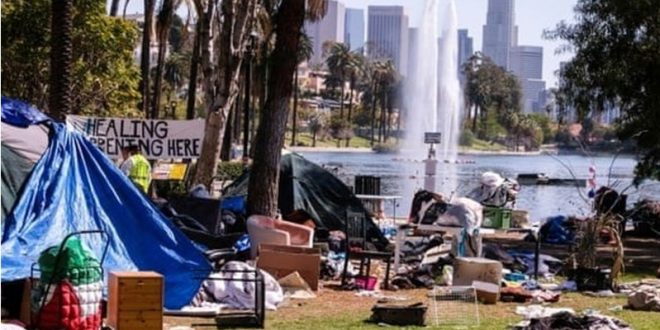09-02-2022
NEW YORK: The number of Americans dying while homeless has surged dramatically in the past five years.
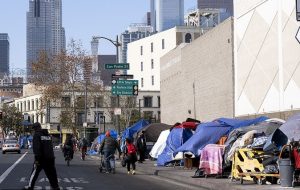 An analysis by the Guardian in conjunction with an academic expert at the University of Washington has shown that an examination of 20 US urban areas found the number of deaths among people living without housing shot up by 77% in the five years ending in 2020.
An analysis by the Guardian in conjunction with an academic expert at the University of Washington has shown that an examination of 20 US urban areas found the number of deaths among people living without housing shot up by 77% in the five years ending in 2020.
The rise from 2016 through 2020 was driven by many factors, including ever-rising numbers of people living on the street and the growing dangers they face, such as violence, untreated disease and increasingly deadly illicit drug supplies.
From 65-year-old Randy Ferris, killed when a car veered into a California sidewalk encampment, Justine Belovoskey, 60, who died alone in a tent during a Texas cold snap, and Anthony Denico Williams, stabbed to death at age 20 in Washington DC, to scores of young people succumbing to overdoses on the streets, their stories reflect the harrowing tragedy of an epidemic of homelessness.
Coronavirus was just one more hazard people struggling on the streets and in shelters faced in the last two years.
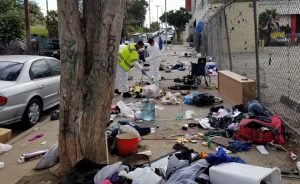 While the federal government makes no effort to count deaths nationally of people deemed homeless, the Guardian worked with Fowle to collect local data from large urban areas, where consistent year-to-year counts were available. The stark results stretch from Los Angeles and Seattle to New York, Philadelphia and Miami, via the heartland.
While the federal government makes no effort to count deaths nationally of people deemed homeless, the Guardian worked with Fowle to collect local data from large urban areas, where consistent year-to-year counts were available. The stark results stretch from Los Angeles and Seattle to New York, Philadelphia and Miami, via the heartland.
The Guardian’s analysis counted 18,000 people who died homeless over five years in encampments, on sidewalks or in shelters, including 5,000 deaths in 2020 alone. In most cases, the deaths were tracked by county coroners and medical examiners, but in a few locations only local non-profits kept track.
Experts at the non-profit National Health Care for the Homeless Council say that, in many places, the people who perish without housing are never counted. They estimate the total number of deaths is actually between 17,000 and 40,000 every year.
In all but two of the 20 cities or counties examined by the Guardian, numbers rose significantly over five years. For instance, the homeless death toll in Los Angeles almost doubled to more than 1,600 in 2020 from 871 in 2016, while New York’s total more than doubled to 685 from 290.
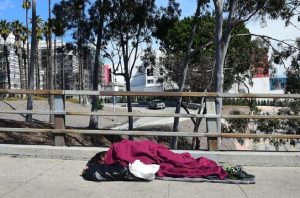 In places that listed causes of death, the most prevalent have plagued homeless populations for years: drug overdoses, violence, traffic deaths and premature lethality of treatable conditions like heart disease. Only New York and Los Angeles noted a large number of deaths caused by Covid-19.
In places that listed causes of death, the most prevalent have plagued homeless populations for years: drug overdoses, violence, traffic deaths and premature lethality of treatable conditions like heart disease. Only New York and Los Angeles noted a large number of deaths caused by Covid-19.
The overall jump in deaths may reflect both increases in the sheer number of unhoused people but also, disproportionately, the growing dangers they face.
The annual count of the nation’s homeless population was postponed in 2021 due to the pandemic, but counts for previous years showed a disheartening trend: after declining for years, the homeless population increased steadily between 2016 and 2020.
And more people who find themselves without a home are living outside, in unsheltered conditions, a factor that was exacerbated by shelter closures in the pandemic. They also suffer the toll of increasingly deadly synthetic street drugs, including fentanyl.
People without a home face three times the risk of death of the general population, according to a local analysis of 2017 to 2019 deaths by Los Angeles county health department’s center for health impact evaluation. It found homeless people in LA were 35 times more likely to die of drug or 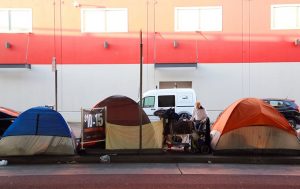 alcohol overdose, 16 times more likely to die of traffic-related injuries, such as being hit by a car, and 14 times more likely to be the victim of homicide.
alcohol overdose, 16 times more likely to die of traffic-related injuries, such as being hit by a car, and 14 times more likely to be the victim of homicide.
In 2020, drug overdose deaths were the top cause of death among homeless people in every urban area that reported causes.
Methamphetamine was also a factor in many deaths.
Jennifer Vines, health officer of Multnomah County, said people living outside sometimes report taking the stimulant at night because they fear violence.
Hersh of Philadelphia, where homeless deaths doubled over five years, also noted rising trends in overdoses and violence since coronavirus arrived, even though its homeless population decreased.
Homeless people are at greater risk of being hit by cars, according to numerous officials, particularly where large numbers are living under bridges or beside freeway off-ramps.
Bob Erlenbusch, executive director of the Sacramento regional coalition to end homelessness, said in northern California, where 70% of the homeless population live outside, has seen more people 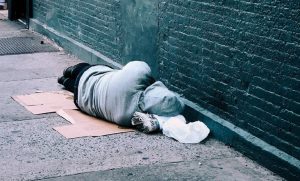 dying of hypothermia in unusual weather events.
dying of hypothermia in unusual weather events.
The climate crisis is driving more extreme weather events across the US.
Beyond the direct medical causes, factors such as widespread lack of affordable housing drive increases in homelessness and, ultimately, deaths, experts say.
Preventable and treatable diseases, including heart disease and diabetes, are among the biggest causes of premature homeless deaths.
It may be some time before the true effects of Covid-19 on this population are known. The biggest surge in coronavirus deaths nationally didn’t come until January 2021, which isn’t yet included in most jurisdictions’ homelessness data.
New York City, which recently disclosed deaths among people experiencing homelessness for the fiscal year ending July 2020, found that there were 121 deaths from COVID-19, mostly among those living in city-funded shelters. That made COVID the second highest cause of the 613 recorded 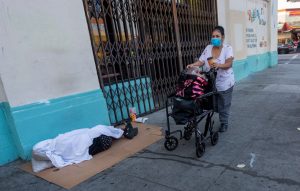 homeless deaths that year.
homeless deaths that year.
Los Angeles’s unhoused have suffered several hundred COVID deaths, Will Nicholas, director of LA County’s center for health impact evaluation, said preliminary figures suggested.
And the pandemic probably worsened overdose deaths across the board.
Experts agreed that the best prescription is to house people.
“You cannot have a healthy society with this many people living on the economic and social margins,” said UCSF’s Kushel. “Homelessness is lethal. We’re not going to be able to solve this without solving homelessness.”
For UW researcher Fowle, who is working on a doctoral thesis about the crisis of US homeless deaths, it comes down to whether our society can muster the empathy to act. (Tasnim News)
 Pressmediaofindia
Pressmediaofindia
